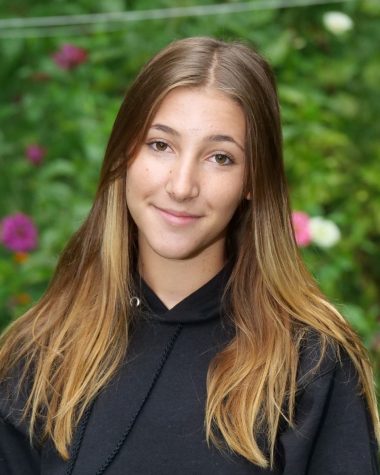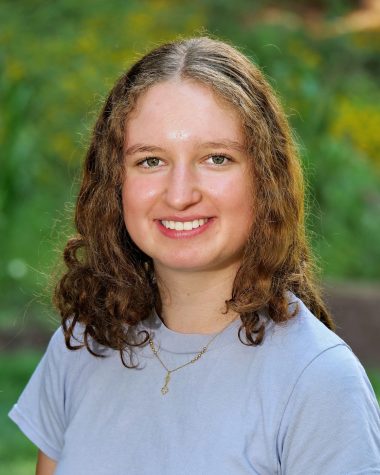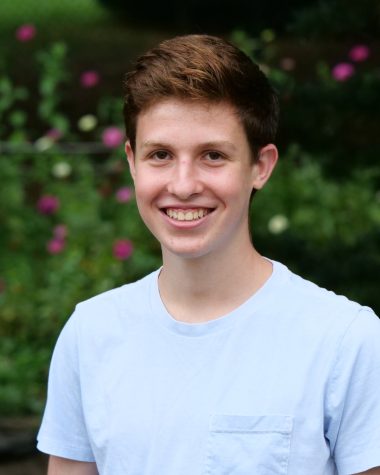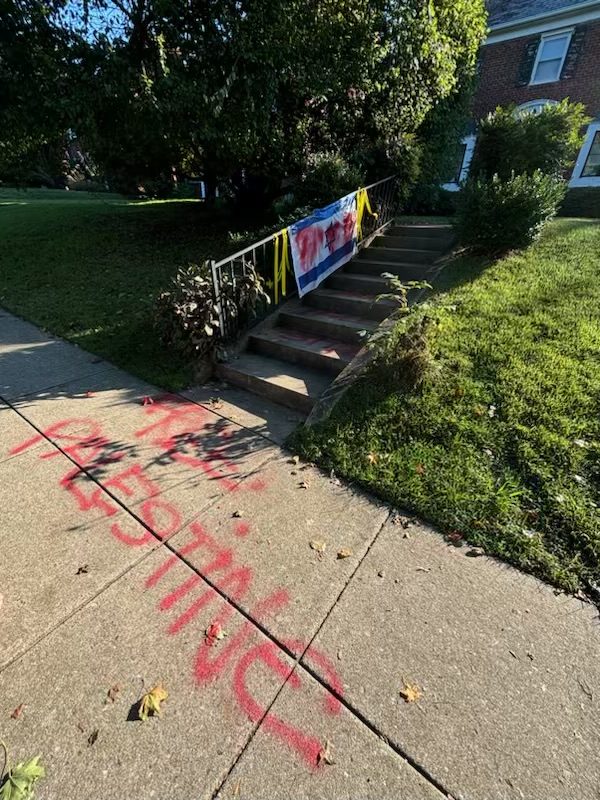Learning hand in hand: A deep dive into Israeli students’ experiences and challenges at JDS
April 11, 2022
Something that sets CESJDS apart from other schools is its large Israeli student population. Whether it is the boisterous Hebrew that echoes throughout the hall or the prevalence of blue diplomat license plates in the parking lot, the Israeli presence is felt throughout the JDS community. In fact, this year there were 70 Israeli students enrolled in the school, which is above the five-year average.
Israeli students choose JDS because they are seeking an education that is somewhat parallel to the Israeli education system. Through the dual curriculum and the familiarity of being surrounded by other Jews, they hope to feel more at home during their time abroad. Though acclimation can be a bit rocky at times, JDS has a number of programs to help their Israeli students adjust academically and socially.
Integration into the school
For Israeli students, transitioning into a new school with established social circles and advanced academics while also adjusting to the culture and language can be challenging.
When Israeli families move to the U.S., Director of Upper School Admission Emma Hart puts them in contact with Rebecca Reiser, the English for Speakers of Other Languages (ESOL) teacher, and Anat Kaufman, Hebrew teacher and Liaison to High School Israeli Families.
“When families move… sometimes everything is new for them and they need someone to guide them and explain to them the life and the community of the school,” Kaufman said.
As liaison, Kaufman introduces the parents to new aspects of American culture. She also guides them through certain procedures that may seem confusing, such as the proper language used to email teachers. As for new Israeli students, Reiser explains that they take an ESOL assessment covering listening, speaking, reading and writing in English to determine their placement in English classes before starting at JDS.
Many Israeli students find that the language barrier makes their classes challenging, even if they already know English. Hadas Shelef is the parent of three children: sophomore Talia Shelef and alum Noa Shelef, both of whom had been exposed to English at the International School in the Czech Republic, and a fifth-grader who learned English at JDS since she was too young to learn in the Czech Republic.
“Learning everything in English at such higher levels was challenging at first, especially since we couldn’t help them much with the language since this isn’t our first language,” Hadas Shelef said.
She explained that her youngest daughter received a lot of support from the school in learning the language for the first time. However, in order to master English, Shelef hired a tutor, in addition to Reiser, to help her children with their schoolwork.
According to Aileen Goldstein, all new Israeli students take at least two years of ESOL study hall, which automatically grants them extended time on quizzes and tests. In addition, Reiser teaches them how to use vocabulary that will help them understand complex subjects as well as improve their reading and writing.
Some students adjust quickly. For example, junior Tamar Oliel thought that the teachers at JDS were helpful and accommodating to her adjusting to the new language. Additionally, she found that the language barrier did not impede on her social life.
“I feel like it was kind of weird at first because I’ve never really spoken in English too much in Israel,” Oliel said. “But I guess it was really fine for me. I found my friends … I have my friends and the people that are really accepting of helping me and stuff like that.”
Junior Ella Elimelech agrees and thinks that having friends who can show new Israelis around makes their transition smoother. In contrast, Reiser hears from many students that the language barrier is challenging for Israelis, and she thinks that the new social scene has a greater impact on Israelis than the language.
“When the Israelis come here, especially in high school, maybe middle school less, but JDS can be kind of a tight community and a lot of the kids here have gone to school together for a long time, so I think it’s less language and more just it’s kind of hard to penetrate that social scene if you are just coming for a short period of time,” Reiser said.
Shelef agrees with Reiser’s sentiment, as her oldest daughter who is now taking classes at Montgomery College was the only Israeli in her grade, which is rare. She found connecting with her peers to be challenging.
Despite this, many Israelis find their groove at JDS academically and socially, making memories for a lifetime.
“I found my friends and people that I like…,” Oliel said. “The people here are really accepting and are generous with helping me.”
Early graduation means schedule adjustments
With a heavy workload and a high-pressure environment, high school is far from easy. Now imagine taking almost all of your classes in a second language and in an environment that is completely different from what you are familiar with. This is the reality for many Israeli high school students who transferred to JDS. Although the school works extremely hard to provide these students with a similar academic experience to everyone else, there are certain differences in their schedules and coursework that cannot be remedied by the school.
In addition to the inherent challenges of transitioning to a new school, Israeli students usually have to take the Hebrew Heritage Learners class and take an ESOL class. Furthermore, they are often required to take a senior English course the summer going into junior year to complete the high school credit requirements.
“Some of the students who are coming from Israel and that will be returning to Israel to join the IDF… need to complete a minimum of three credits of math, three credits of science and four credits of English,” Aileen Goldstein said. “We work with them on the state requirements and adjust the Judaic requirements based on the number of years that they will be here.”
Many Israeli students don’t spend four high school years at JDS and instead choose to graduate a year early either to move back to Israel or spend a year at a community college. They graduate early in order to avoid taking the “Bagruyot” tests, which are a long series of standardized tests that all high school students in Israel are required to take that are submitted to Israeli universities after the army. If students go to college for a year, they can use their college credits to apply to college in Israel instead of the test scores.
For students coming from Israel, many aspects of American education differ greatly from Israeli education. For example, according to Oliel, there are major differences in the structure of their schedule. Unlike the United States, in Israel, one stays with a single group of students throughout the day.
In addition to the challenge of adjusting to a new school with a different schedule, most Israeli students have to enroll in a rigorous Heritage Hebrew Class, which only adds to their workload. The class is fully taught in Hebrew and follows a strict curriculum provided by the Israeli government. In this class, they engage in complex discussions about certain Israeli texts, complete extensive writing assignments and occasionally discuss Israeli politics.
“The class is very different [from an American class],” Kaufman said. “First of all, the atmosphere of the class is very Israeli. When you open the door you feel that it’s not a typical American class, it’s a very Israeli atmosphere. It is very high level.”
The class gives Israeli students the chance to spend time with other Israelis in a more familiar environment.
“It gives me a sense of community. It gives me a sense of attachment to the Israeli community and I feel like I am at home,” junior Matan Goldstein said. “At the same time, I’m learning about my Israeli identity. A lot of subjects that are taught right now in 11th grade in Israel are pretty much taught here in the heritage class and I’m learning a lot of these famous Israeli pieces of poetry that I wouldn’t have imagined ever learning.”
Despite its challenging nature, the heritage class does not count as an advanced credit, as it is technically the same curriculum as grade-level classes taught in Israel. However, students who take this class are not in the same environment as Israeli students are in Israel, which makes the already rigorous class even harder and puts them at a disadvantage.
“The heritage class is based on the Israeli education system and that curriculum, so it can be extremely challenging for Israelis that have not gone to any part of high school in Israel,” Elimelech said. “We are learning at a very fast pace and are learning a challenging curriculum.”
Although there are many aspects of JDS that are challenging for Israeli students, there are also many parts that make them feel welcome.
“The school does a very good job for example with the tekes Yom HaZikaron and Yom HaAtzmaut and it instills a love for Israel along with the texts classes,” Matan Goldstein said.
Israel as a sensitive topic
Ahavat Yisrael, or a love for the state of Israel, is one of JDS’s core values, and the school offers a variety of Hebrew language and Israeli studies courses to strengthen their students’ connections to Israel. Such classes include Modern Jewish History, Contemporary Issues in Israel as well as Arab-Israeli Conflict. However, despite the school’s effort, many Israeli and non-Israeli students feel that the school can be overly critical of Israel.
“I think there is a feeling amongst some that [the school is]too critical,” Aileen Goldstein said. “We believe that each of our students should be developing a relationship with Israel that is a thoughtful and grounded relationship and part of that involves love with questioning and really looking at what some of the issues are. We don’t shy away from the issues and we really work to promote ‘Ahavat Yisrael’ throughout the program, so both experientially and in the classes. And that said, there are some Israelis and non-Israelis who get uncomfortable with it.”
Many Israeli students, including Elimelech, believe that the school does not work hard enough to promote this core value of “Ahavat Yisrael.”
“I think that the school needs to talk more about the love for Israel rather than just talking more about what went wrong or how Israel responded to different wars and attacks,” Elimelech said. “I think they need to shift and talk more about Israel’s accomplishments and still talk about negative things that have happened but really make sure that all the students will love Israel and at the end of the day, acknowledge that it is the Jewish people’s state.”
Many students who were born in, who have lived in or have family in Israel often hold a unique, deeper connection to the country. It can often be challenging for them to hear people criticizing their home or saying something that might invalidate their own personal experiences.
Inevitably, both Israeli and non-Israeli students have a bias when it comes to talking about Israel, which can make it difficult to foster discussions about the Jewish state.
“I feel like because I’m from Israel, I have bias. I do feel like the school is trying, with things like the Arab-Israeli conflict class, to educate about Israel and show both sides rather than just one, which is…different from what I would learn in Israel,” Oliel said. “However, sometimes it’s really hard when you hear people’s opinion when it seems like they only see one thing and not the other because it’s like, that’s not really what’s going on and that’s not what I actually experienced.”
While the general population of Israeli students do not feel they are treated any differently, various students, including Matan Goldstein, notice that insulting remarks are often made to them when discussing issues in Israel.
“There are many jokes made about the Israelis that are very insulting. For example, I know many people who have been called Muslim assassins and people have said that that they throw stones at Palestinians,” Matan Goldstein said. “Some people don’t mind it, but I think I think it’s absolutely disgusting.”
Matan Goldstein explained that while he appreciates that JDS does a good job educating non-Israelis about Israel, he wishes the school would take a stand in support of Israel when it is involved in conflict with its neighbors.
“When Israel is in times of need or when Gaza is throwing rockets at Israel, I think a small email would do a lot,” Matan Goldstein said.
This belief is shared amongst parents of Israeli students as well.
“I think that overall there are several classes in high school that reflect and teach about Israel, its history, culture and current events. I am a bit disappointed that during the attack on Israel, ‘guardian of the walls,’ the school didn’t pay enough attention to it and didn’t talk to the kids much about the situation because they didn’t want to take a side politically,” parent Hadas Shelef said.
Teachers cannot voice their political opinions about issues, and therefore discussions about events taking place in Israel can often be difficult to have. Many parents and students believe that discussions about Arab-Israeli conflict should be an exception to this rule and they believe that JDS has the responsibility to speak up in support of Israel. Administrators recognize that addressing the concerns of multiple groups can be difficult.
“I think that is a challenge when you are in a pluralistic community and you really believe in promoting that critical deep level of thinking and that deep level of love as well, and I think they go hand in hand,” Aileen Goldstein said.










